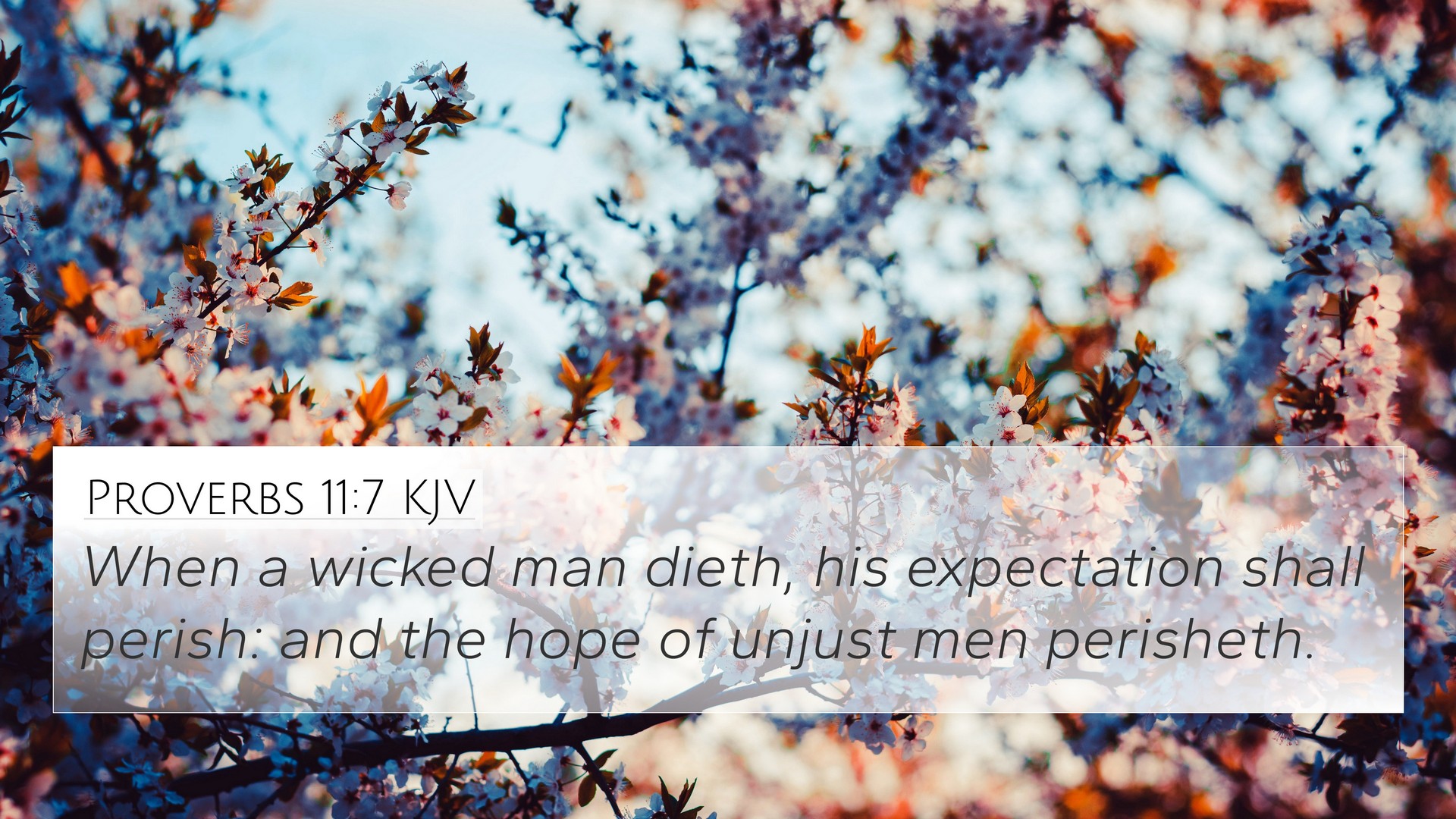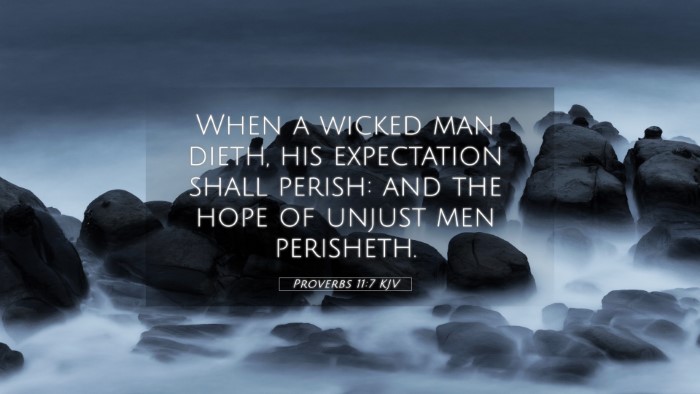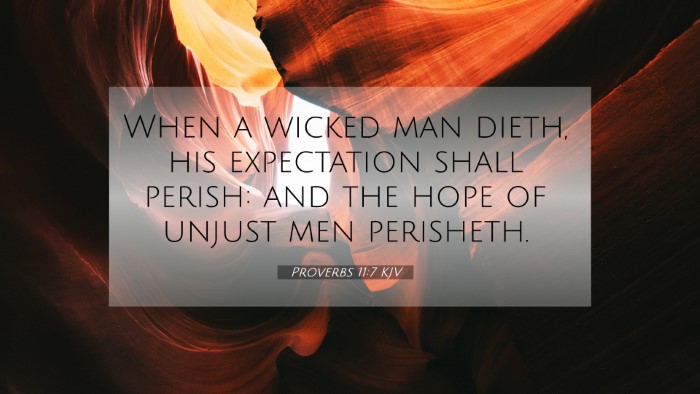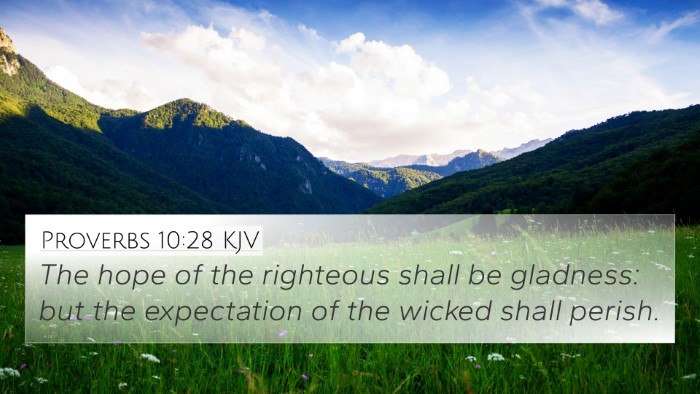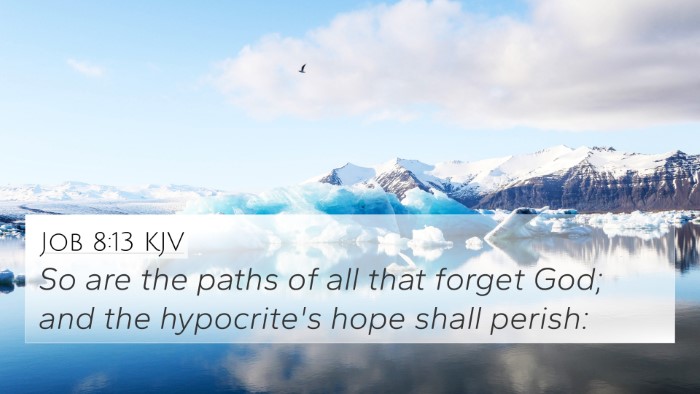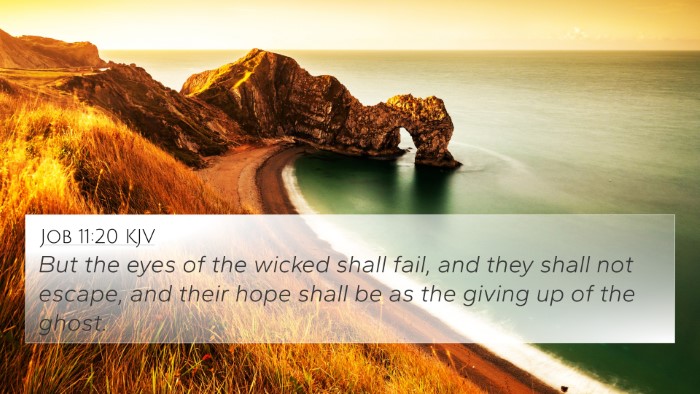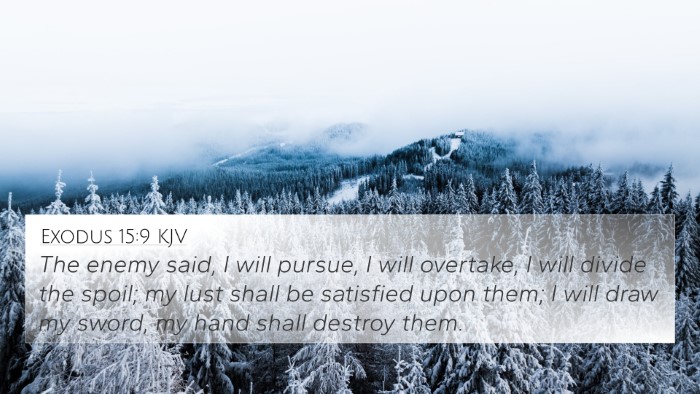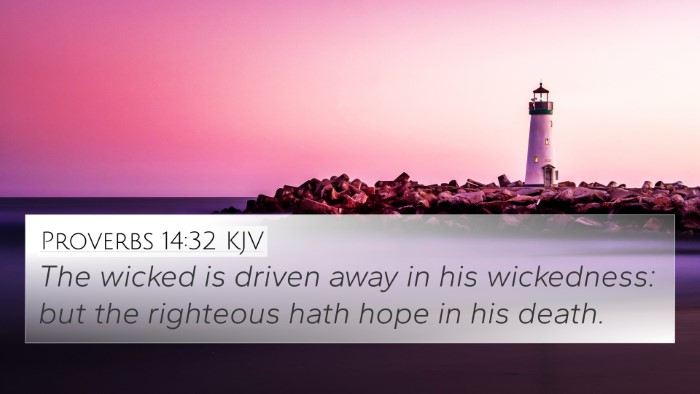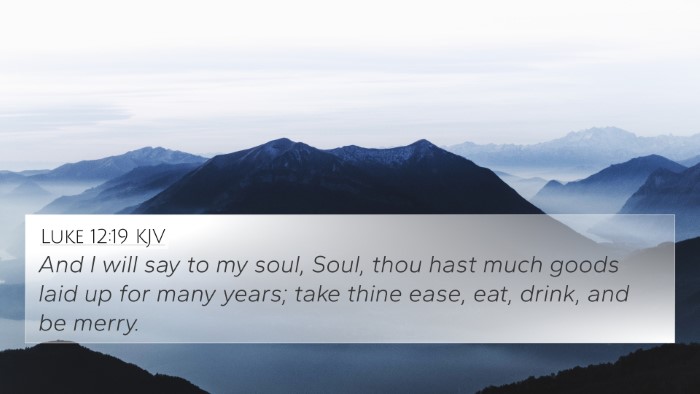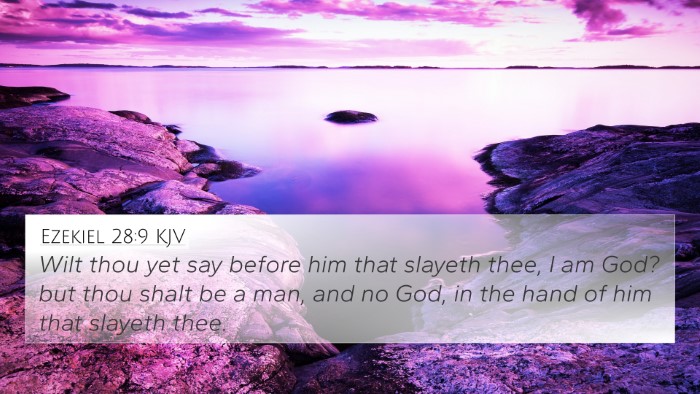Understanding Proverbs 11:7
Proverbs 11:7: "When the wicked dies, his expectation shall perish: and the hope of unjust men perishes."
In this verse, we see a profound truth about the fate of the wicked contrasted against the righteous. The insights drawn from various public domain commentaries highlight several themes that enhance our understanding of this scripture.
Meaning and Interpretation
1. The Fate of the Wicked:
This verse emphasizes that the death of a wicked person leads to the termination of their hopes and aspirations. Matthew Henry explains that while the righteous have a future in God, the hopes of the wicked are ultimately tied to worldly pursuits that come to nothing at death. Albert Barnes emphasizes that the expectations that the unjust have during their lives, such as prosperity and security, vanish upon their demise.
2. The Collapse of False Hopes:
Adam Clarke points out that the wicked often live in a state of delusion, believing their actions will bear fruit. When they die, those delusions are shattered, revealing that their hopes were built on a false foundation. Their relentless pursuit of sinful pleasures leads them nowhere, and their demise reveals the emptiness of their ambitions.
3. Wisdom of Righteous Living:
Contrasting the fate of the wicked, the verses surrounding Proverbs 11:7 encourage wisdom and a life lived in accordance with divine principles. Henry remarks that the life of the righteous is filled with hope and expectancy that continues beyond death, contrasting sharply with the finality faced by the wicked.
Related Cross-References
Proverbs 11:7 has several biblical parallels that deepen our understanding through thematic connections:
- Psalms 37:10: "For yet a little while, and the wicked shall not be: yea, thou shalt diligently consider his place, and it shall not be."
- Psalms 112:10: "The wicked shall see it, and be grieved; he shall gnash with his teeth, and melt away: the desire of the wicked shall perish."
- Isaiah 57:1-2: Discusses the righteous being taken away and finding peace, while the wicked remain in turmoil.
- Proverbs 14:32: "The wicked is driven away in his wickedness: but the righteous hath hope in his death."
- Jeremiah 17:10: "I the LORD search the heart, I try the reins, even to give every man according to his ways, and according to the fruit of his doings."
- Matthew 16:26: "For what is a man advantaged, if he gain the whole world, and lose himself, or be cast away?"
- Luke 12:16-20: The parable of the rich fool illustrates the futility of greed and the unexpected nature of death.
Thematic Connections and Applications
The connections between various biblical texts reveal a continual theme of hope versus despair. The fate of the wicked is a recurrent motif throughout Scripture, where their anticipated successes contrast with the ultimate reality of their choices. This verse, among others, serves as a reminder of the transient nature of earthly desires and the enduring hope found in living righteously.
Using Cross-References for Deeper Study
Engaging with cross-referenced Bible verses can significantly deepen one's understanding of Scripture. Here are some tools and approaches to consider:
- Bible Concordance: A comprehensive reference tool that lists words and phrases, allowing for easy identification of related verses.
- Bible Cross-Reference Guide: Helps in systematically tracking themes and teachings across different parts of the Bible.
- Bible Chain References: A method of linking verses that discuss similar themes or teachings, providing a pathway for thematic study.
Conclusion
Proverbs 11:7 stands as a sobering reminder of the outcomes awaiting the wicked, contrasting them starkly with the hope found in a life aligned with God's principles. Utilizing tools for Bible cross-referencing enriches the study experience and facilitates a deeper understanding of how various scriptures interrelate, offering profound insights for personal reflection, teaching, and sermon preparation.
